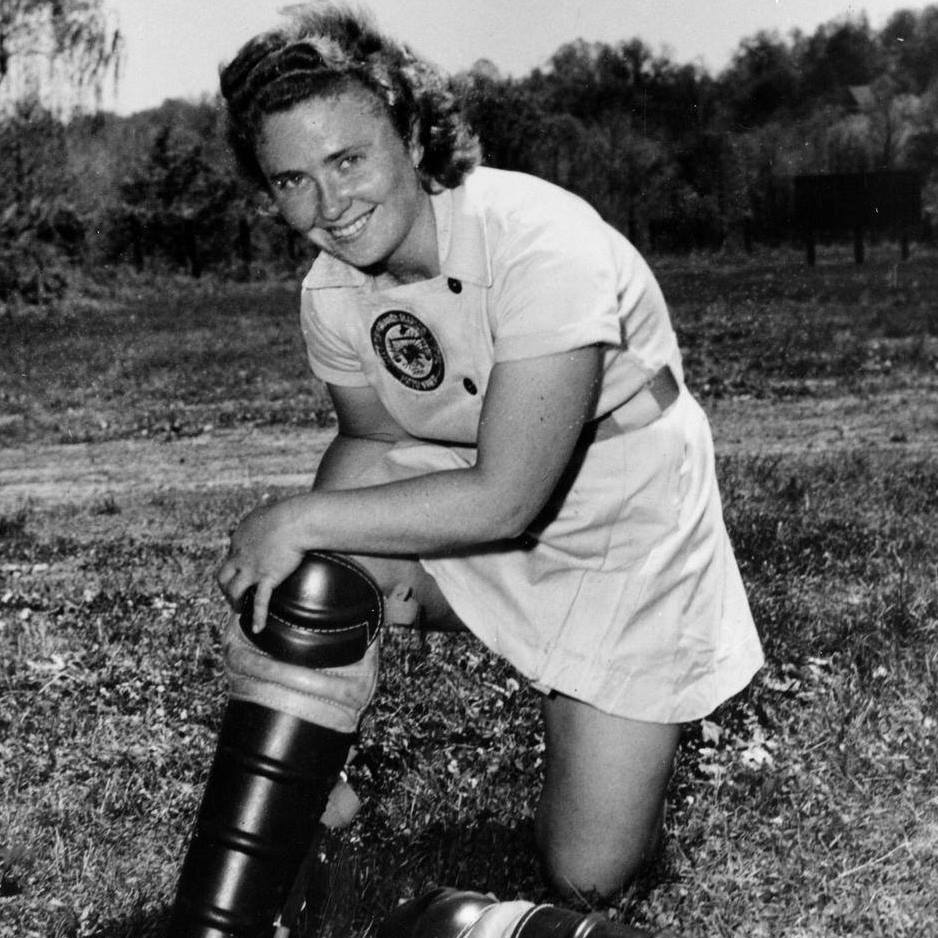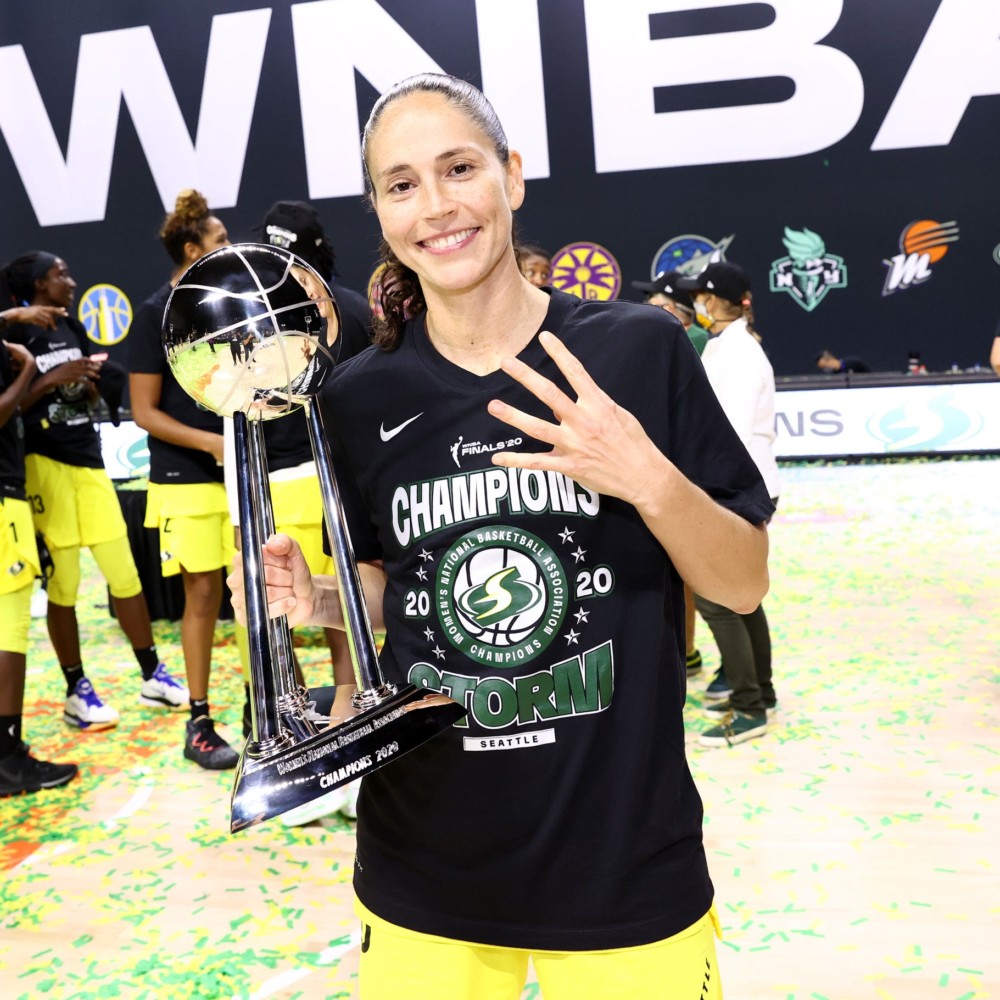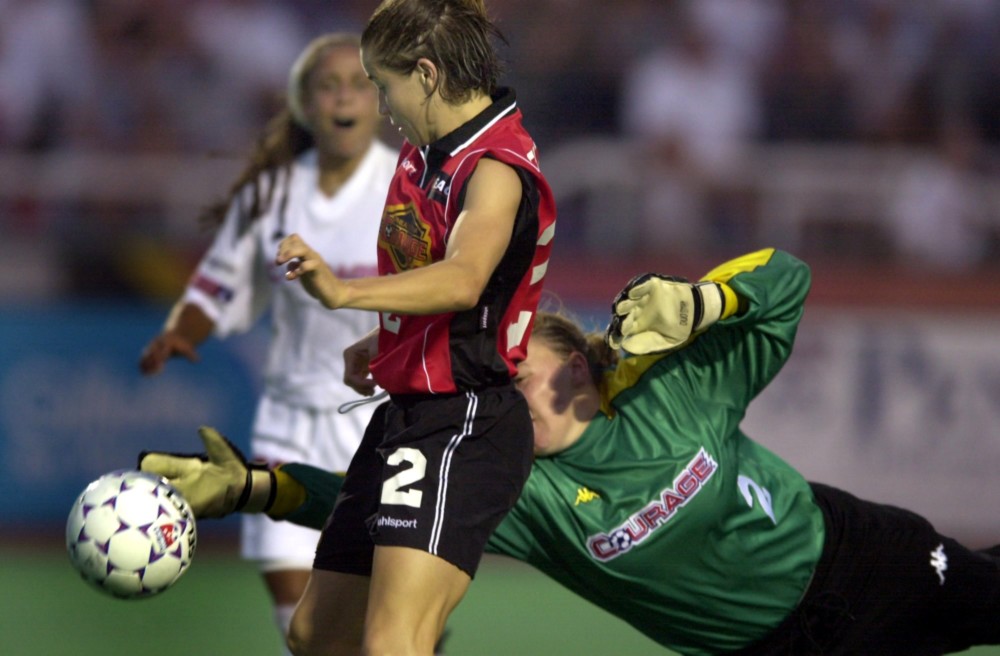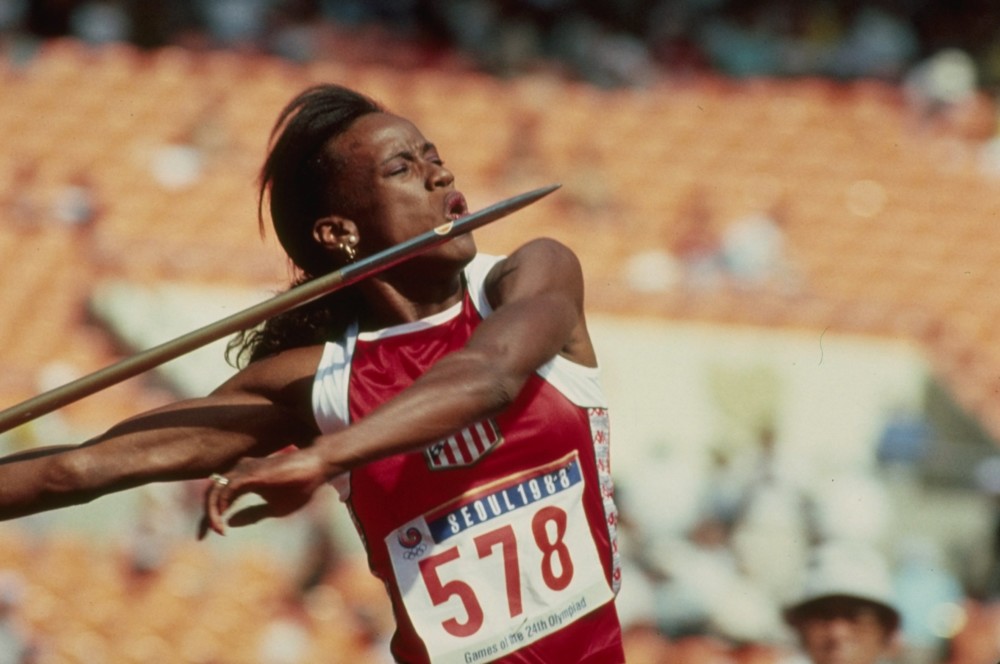By Marc Topkin
Tampa Bay Times
WWR Article Summary (tl;dr) The real life women behind the hit movie “A League of Their Own” are doing what they can to keep the history of the league alive for generations to come.
ST. PETERSBURG
Until the movie, Sue Parsons Zipay was happy to live with what she called “her little secret.”
There were a couple boxes stashed around their house with some equipment and memorabilia, the stuff her mom hadn’t tossed. A few curious looks from her sons’ friends when she’d join them in the yard to play catch.
But otherwise, Zipay said, “I didn’t think it was really that important. It was just something I did.”
Then Penny Marshall happened to see a 27-minute 1987 public television documentary about a women’s pro baseball league that played in the Midwest during the 1940s and ‘50s.
Marshall was intrigued enough to want to develop the project further. After some initial brushbacks, she took a swing, producing and directing the 1992 movie, A League of Their Own. Thanks to some big-name stars and a well-written script, the film became a smash hit.
And interest in the story of the All-American Girls Professional Baseball League (AAGPBL), and its players, soared.
“It was absolutely everything,” Zipay said. “Nobody knew what we did and we never told anybody what we had done. The only people in my family that knew were my kids and my husband.
“And then the movie came out and everybody knew about it. So it was very, very big. We would be nowhere, and nothing. And probably people would still not know that we ever existed.”
Nearly 30 years since the movie premiered, launching Tom Hanks’ line “There’s no crying in baseball” into the sport’s lexicon, that interest remains high.
Former players such as Zipay, who lives in Englewood, south of Sarasota, are approached for autographs and photos. A permanent display about the women’s league was built in the baseball Hall of Fame in Cooperstown, N.Y. (There is also one in the Ted Williams museum at the Trop.) An aagpbl.org web site provides history and player bios, plus a link to buy merchandise repping teams such as the Rockford Peaches, Racine Belles and Kenosha Comets.
And there are annual reunions of the remaining players, plus other occasional events that bring them together. That includes the Feb. 1 Ted Williams Hitters Hall of Fame induction dinner at Tropicana Field.
Zipay and fellow players Maybelle Blair, Shirley Burkovich, Toni Palermo and Lois Youngen, plus two actors from the movie (Anne Ramsay, Patti Pelton), will be honored as part of a tribute to Marshall, who died in 2018 and will be represented by daughter Tracy Reiner, who also was in the film.
The players and actors will join Hall of Famer Wade Boggs, Dale Murphy, Carlos Pena, Blake Snell and other current and former big-leaguers in the pre-dinner autograph session, and will have longer lines than some.
With only roughly 150 of the 600-plus women who played in the league still alive, Zipay, who at 85 is one of the youngest alums, said the get-togethers have become even more special.
“I don’t think anybody can really realize or understand what it was like,” she said.
“We have kind of a sisterhood because we all have that feeling to know what we did, what we went through. It’s really great when we get together, talking about old times and just seeing each other.”
Zipay (who played as Parsons, her maiden name) got involved near the end of the All-American Girls Professional Baseball League, which started in 1943 to provide a sports and entertainment option with many male players away for military service, and ceased play in 1954.
Unhappily playing softball as the only option in her Hingham, Mass., hometown, Zipay was told by a coach about the women’s baseball league in the Midwest.
“I couldn’t believe it,” she said. “I thought she was kidding me because I had no idea there was such a thing for girls. In those days we couldn’t even wear jeans; my mom used to hide them.”
The coach knew the Peaches’ team chaperone and arranged for Zipay to get a brief tryout. She signed shortly after graduating high school and, despite some family concerns, headed off in 1953 to Rockford, Ill., making $50 a week, plus $2 a day in meal money, to join the team playing every day and twice on Sunday, traveling at night by bus.
Zipay spent her first season with the Peaches “scared to death” playing for former major-leaguer Johnny Rawlings, then better and more confident her second, which turned out to be the league’s last.
She worked for a bit as a private secretary, got married and started raising her three kids. She eventually took up tennis and became a nationally ranked amateur player and a teaching pro, which is what led her to Florida in the late 1980s as she and her son, Bob, bought, and still run, the Englewood Tennis Club.
Hearing the movie was being made — plus getting invited to be in opening/closing scenes — was rejuvenating.
Zipay is concerned that interest in the league and, more importantly, women’s baseball overall will wane after the players all pass on, and is working fervently to help girls who prefer baseball over softball to have avenues to keep playing.
She formed a non-profit subsidiary, American Girls Baseball, to raise awareness and support, and ultimately to increase opportunities in the present and future.
That included a camp for 60 girls at the Braves new facility in North Port last year, and plans for more, including in Tampa, working with Florida Bolts program.
“What we’re trying to do is create a pathway for these girls who want to play baseball to have a choice and have a way to develop their skills so they can look forward,” Zipay said.
“So they can say, ‘If I really stay with this and I love this game, maybe there will be something for me in the future.’ Maybe there will be another league of their own.”
___
Distributed by Tribune Content Agency, LLC.

















































































































































































































































































































































































